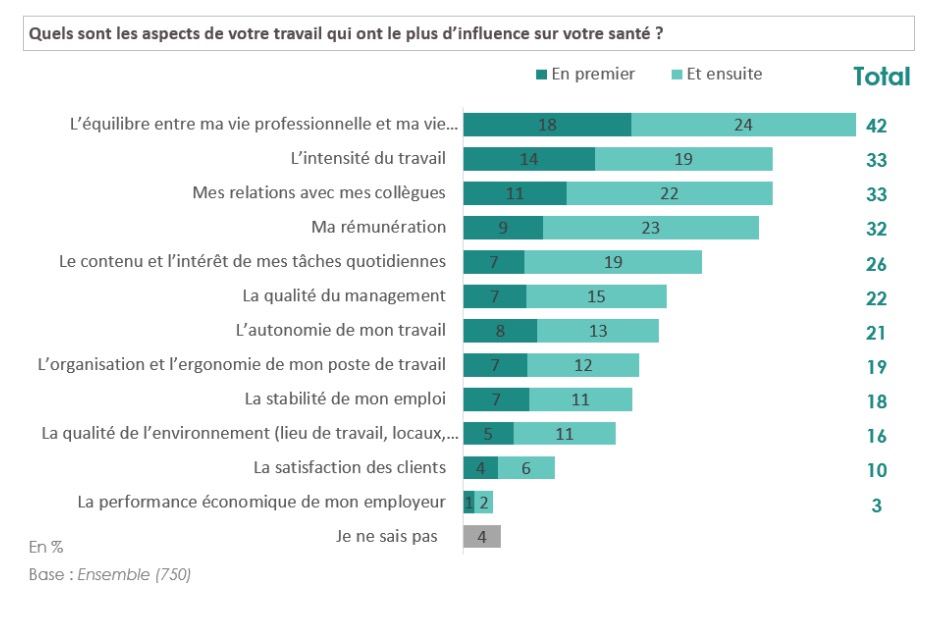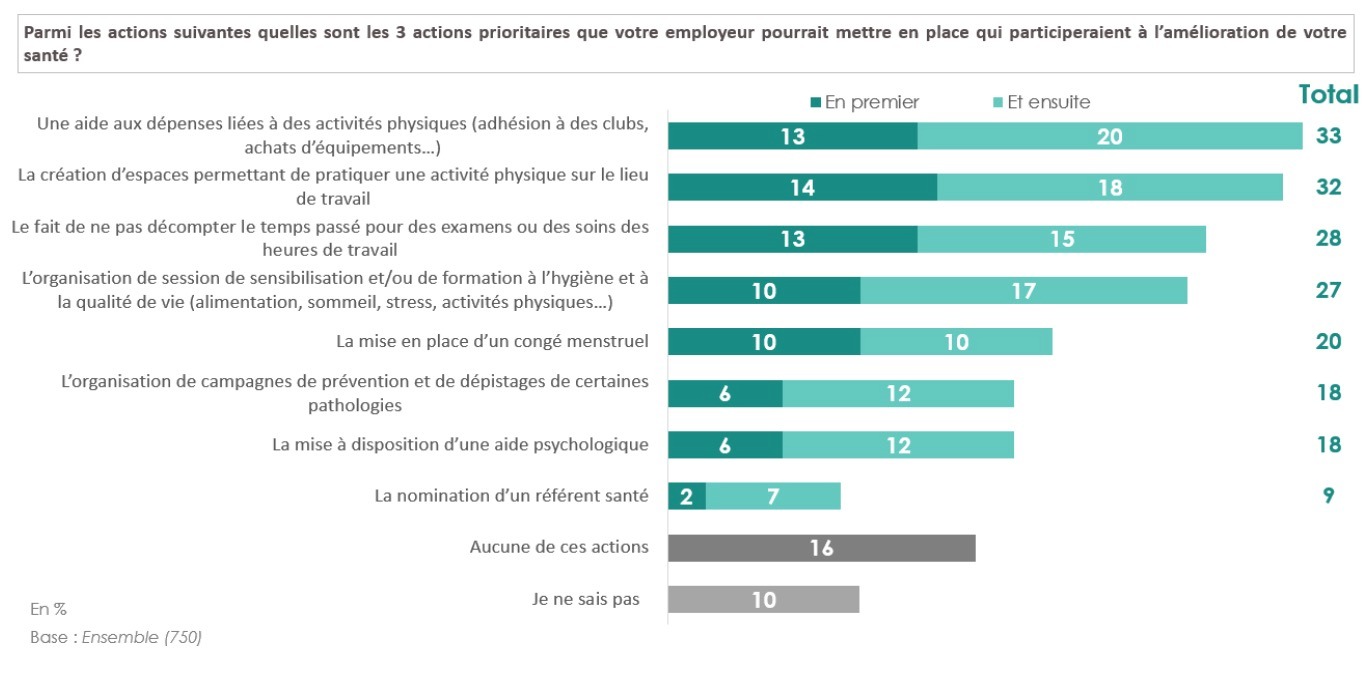Published on
Updated
Reading 3 min.
On the occasion of quality of life at work week, the Equality Laboratory unveils the results of a study on “the health of working women”. While a large majority of working women say they are in good health, more than a third report a deterioration and more than half (58%) admit to being worried about their physical and moral health.
The study was carried out with a panel of 750 working women (quota method applied) and which draws up an inventory of the situation. “In a post-health crisis period, the Equality Laboratory wanted to carry out an inventory of the health of women at work. The results of the study illustrate in particular the impact of reconciling professional, personal and family time on women’s health.” indicate Patrick Boccard and Marine Darnault, co-pilots of the study.
58% of working women are worried about their health in general
More than 8 in 10 working women (85%) report being in good health currently. Good health that declines with age: working women over 50 are more likely than others (18% compared to 14%) to report being in poor health.
However, it is a matter of concern for a large number of them. A concern which seems to have its source in a very concrete reality: 1/3 of working women (36%) have noticed a deterioration in their state of health in recent months, this is particularly the case for 41% of women between 35 and 49 years old whose state of health has deteriorated recently.

- 75% of working women consider that the quality of life at work is good
- 85% of active French women perceive themselves as being in good health
- 36% of them have nevertheless noticed a deterioration in their state of health in recent months (including 41% aged 35 to 49)
- 58% of working women are worried about their health in general
- 30% of working women are worried about their physical AND mental health
Balancing time: a major health issue for 42% of working women
When asked about the element that most influences their health, work-life balance is the first item spontaneously cited by 1/4 of them. Elements related to working conditions alone account for half of the responses.

- Work-life balance is the most important criterion for the health of working women (42%).
- The quality of life at work has a very concrete impact on women’s health: sleep problems, migraines and anxiety/depression
- The doctor (treating doctor, specialist doctor, occupational doctor) remains an essential figure for discussing his health (84%) largely in front of those around him (59%) and colleagues (10%).
- Working women have high expectations in terms of support for sporting activity from their employer: 33% would like assistance with expenses related to physical activities and 32% the creation of spaces to be able to practice a sporting activity on their workplace.
Quality of life at work has real implications for women’s health
- If 75% of women say they have a good quality of life at work, 1 in 5 say it is poor.
- Women who report a poor quality of life at work say they are in poorer general health (72% vs. 85%).
- Nearly 1 in 2 working women (45%) say they have had sleep problems in recent months. 1/4 of working women also report having had a migraine and 26% have suffered from depression or anxiety. These pathologies are more present among women reporting a poor quality of life at work. More than half of them report sleep problems, 43% suffer from depression and a third (35%) suffer from migraine.
- Women who report a poor quality of life at work cite work intensity, remuneration and quality of management as factors having the greatest impact on their health.
“The Equality Laboratory, in line with its mission to combat stereotypes and professional discrimination, wishes to initiate a collective dynamic likely to lead to an improvement in the state of health of working women (…) This working group bringing together all the stakeholders concerned, must make it possible to identify and prioritize the ways and means to ensure better consideration of the needs and expectations of working women and the solutions likely to combat the most effectively against the pathologies most seriously affecting their well-being and their quality of life at work” conclude Patrick Boccard and Marine Darnault, co-pilots of the study.
